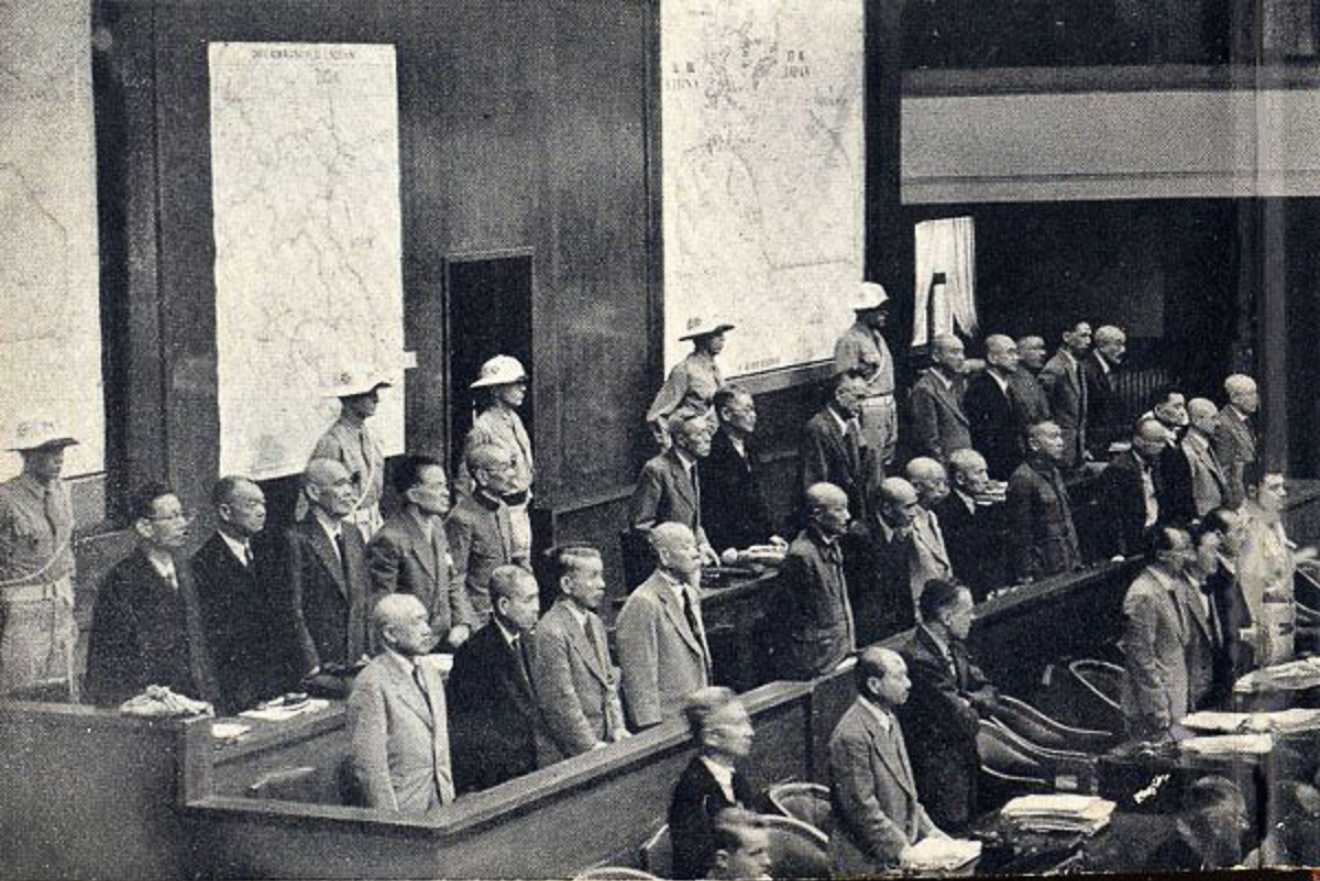The judges at the International Military Tribunal for the Far East Ichigaya Court : Wiki Commons
A five-year research project will examine East Asia’s emergence and struggle for self-definition after the fall of the Japanese Empire.
A major historical research project which will examine how East Asia redefined itself after World War II, with results that affect international relations in the region even today, has been announced.
The five-year project, in the Department of East Asian Studies at the University of Cambridge, aims to understand how political and legal authority was established by different regimes in countries such as China, Korea and Taiwan, as the area emerged from the shadow of Japanese Imperial rule after 1945. The Department is currently advertising for new postdoctoral research positions and PhD scholarships to work on the project (details below).
Japan’s surrender at the end of World War II led to a series of social and political transformations in East Asia as new political entities and powers surfaced. In many cases this struggle for political autonomy led to the eruption of new conflicts over the next two decades, among them the Korean War, the so-called “Malayan Emergency”, and a string of conflicts in what had been Indochina, culminating in the Vietnam War.
The new project will attempt to explain the ways in which East Asian countries and communities understood, or tried to understand, themselves as this new, definitive era in the region’s history began. The results continue to have deep resonance even in the 21st century, shaping the alliances between different East Asian states and Japan’s often strained relationship with some of its nearest neighbours.
Dr Barak Kushner, who will lead the project, said: “The region’s understanding of its own past and its internal dynamics remain deeply rooted to the manner in which World War II ended. The legacy of the issues this research project will look at weighs heavily even today, because it provided a new vocabulary to East Asian political entities, as critical decisions were made about how Japanese imperialism should be replaced and adjudicated in the post-war era.”
A key focus of the project will be the local war crimes trials that took place in East Asia after the war, and the broader pursuit of justice against those who had supported – or were accused of supporting – the Japanese regime.

Deliberately looking beyond the western-sponsored International Military Tribunal for the Far East (The Tokyo Trials), the researchers will examine how East Asian countries searched internally for war criminals, collaborators or suspected traitors.

By identifying these individuals and attempting to bring them to justice, the new powers in the region made important declarations about their own authority, legitimising themselves and therefore determining what shape a post-Imperial future in East Asia might take. The process effectively made a series of statements about how former Imperial subjects now intended to behave as independent, subjective political actors – not only in East Asia itself, but on the world stage. Numerous local grudges were also played out through these acts of justice.
Through the prism of this legal process, and the “political rituals” it represented, the research project will seek to explain how different political forces made a bid to control the future of East Asia, and how new communist entities in countries such as China and Korea tried to secure their positions against what they saw as the new imperial player in the region – namely the United States.
More broadly, the examination of local war crimes also defined who was who in the region, as attempts were made to explain what it meant to be Chinese, Japanese or Korean in the context of bringing criminals to justice. While on the surface this seemed relatively clear cut, it rapidly became apparent that local loyalties and blurred ethnic boundaries would make the determination of national identity in East Asia a highly complex task.
Funded by the European Research Council (ERC), the project is entitled “The Dissolution of the Japanese Empire and the Struggle for Legitimacy in Postwar East Asia, 1945 – 1965”.
Over five years, the project will employ four postdoctoral research associates and two PhD students on full scholarship. In addition, the project will convene two international conferences.







